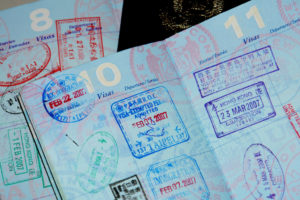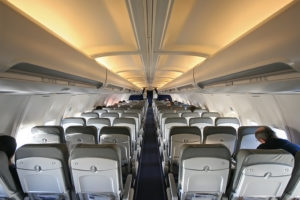I have learned a thing—or 20—about travel since my first 2-week trip to the Dominican Republic as a 15-year-old innocent traveling solo. This collection of travel tips is meant for both the rookie traveler as well as those, like me, who have a few journeys under their belt but are always eager to improve the ever-changing art of travel—something that commonly proves to be far more challenging than what we see romanticized in the movies.
You’ll also have to do your own due diligence. For example, some of these suggestions may help you out in Europe but are not applicable to Asia. Others may be of help around the world, but space restrictions have kept me from offering only the most basic explanations.
Although generally meant for American travelers, and mostly for travel abroad, many of these tips will prove helpful to anyone traveling anywhere. If an approaching departure is starting to make you reconsider the trip you booked, you’ll find volumes of wise suggestions on the internet if you Google for recent articles. Also entry requirements for different countries that have seemingly held firm can commonly change overnight. Case in point: I have had to scramble at the eleventh hour, unaware that a new visa requirement had been overlooked. (NB: Visas can be expedited and received in no time flat.) Read on for more tips!
 Passports
Passports
Check to see when your passport expires. Many countries require that your passport be valid for 6 months (others for 2 to 3) after the day of your arrival or you may be denied entry. Additionally, some countries require that you have two fully blank pages.
Leave plenty of time for passport renewal (generally 4 to 6 weeks), although in an emergency (and for a handsome fee) you can easily have it expedited. For more information, click here.
Make sure you’ve checked to see if you need a visa for the country you are visiting, which you can apply for in person if you live in a city where there is a consulate, or directly at the embassy in Washington, DC (otherwise it is easily done by mail). Some countries even allow you to acquire visas upon entry at the airport, though this should be triple-checked in advance of your departure. For more on that, click here. If you are short on time or are not good with paperwork, a reputable visa and passport expediting agency can be a smart albeit costly choice.
Even if you are not planning to travel, renew your passport and let it be your incentive (I swear mine calls to me). You never know when you’ll need to travel at the drop of a hat.
Make photocopies of the picture page of your passport. Carry one on you and leave one with a friend or relative back home in case of a lost or stolen passport. I would also suggest scanning and emailing a copy of your passport’s picture page to yourself!
 Air Travel
Air Travel
I could write volumes here about pertinent facts, starting with something as basic as knowing the difference between a “direct” and a “nonstop” flight (you’ll want the latter) and making sure you purchase your ticket under the same name that appears on your passport or ID. If the airline allows, secure your seat assignment wisely using a website such as SeatGuru.com well in advance. Familiarize yourself with what is permitted and prohibited in your carry-on bags so that you don’t hold up the line at the security check or have anything confiscated. This government link answers this and myriad other questions about air travel. Dress comfortably and in layers—air conditioning can bounce from arctic to nonexistent—and always bring healthy snacks. Sanitize your area (yes, the tabletop, seat-belt buckles, armrests, etc., really are that germ-covered). Be vigilant when shopping online of sites that will sell you multiple-leg flights with ridiculously tight connections—something especially implausible if the airport is huge and you might be changing to an airline in another terminal.
Air travel has changed greatly since September 11, 2001.
And don’t forget to create frequent flier accounts with the airlines to start accruing miles.
 Accommodations
Accommodations
These days the possibilities of where to stay overnight are many and varied in ways unheard of not that long ago. The most conventional and, for the moment, still the most popular choice are the hotels of the world, with something for every budget. Tripadvisor, Booking.com, and Trivago are just a few of the big players in the travel industry. Tingo will automatically rebook you at a lower price if your room rate drops. Hipmunk is known for last-minute deals for unsold rooms up to 72 hours ahead of arrival, while HotelTonight is the pioneer of same-day mobile bookings. Comparison shopping is a given, but I always call the hotel directly to see if they can do better—and at the least, match the online price. Airbnb is giving the hotel industry a run for its money, with 1,500,000 listings in some 34,000 cities around the world, from Berlin studios to New York City brownstones in Greenwich Village, and for rates that range from very modest to steep. If you’re unpacking for a few nights or a few weeks, you might consider booking an apartment or even a home, something especially cost effective if you are a family or a small group of friends traveling together. HomeAway and its sister property VRBO (Vacation Rental By Owner) are two of the most established agencies to explore. Those who think outside the box and have experimented with house or home swapping almost always go on to try it again. HomeExchange is the best place to start and offers options around the world.
 Staying Connected
Staying Connected
There is no easy answer for the best international cell phone usage—the options are as varied as your needs and budget, so you will have to do some research. Contact your US phone company to see if you already have international service as part of your regular coverage and, if so, what is included (email, texts, data for internet, and international calls). Ask how much international usage is included, and what the charges would be if should you were to go over your usage. Most companies offer special international/global add-on plans to basic service, either by the day or month and with different levels of usage and expense. Make sure you understand what you’ve signed on for in order to avoid any surprises once you get home. Alternatively, you can call your wireless company to see if your phone model is or can be “unlocked” to support a SIM card (subscriber identity module), a prepaid international and country-specific microchip. You can purchase and install it in advance or upon arrival at your destination: The card allows you to work on the local mobile carrier’s network and makes the most sense if you intend to make a lot of calls when traveling. Purchasing or renting a local phone upon arrival should be considered if the length of your stay makes it worthwhile. Those who don’t need to be connected at all times and are not interested in social media can rely on Wi-Fi hot spots at cafes, museums, etc. (many hotels abroad are now offering free Wi-Fi in guest rooms), or leave your mobile devices at home and use the occasional computer in your hotel lobby or business center or in an internet cafe.
 Credit Cards and ATMs
Credit Cards and ATMs
You’ll need to do a little bit of homework before you leave the country. It is important to remember that each credit card company has its own policies, and these policies can change. Find out which credit card issuers have waived the foreign transaction fee, i.e., the percentage of the purchase price you are charged every time you swipe the card abroad. Always ask to have the charge made in the local currency (it’s a long story, but this will ensure a better conversion rate) and not in US dollars. Call each credit card company and ATM bank and let them know the dates you are traveling and the countries you are visiting: Some companies require this; others merely recommend it. Bring two credit cards (not everyone accepts American Express, for example) or a back-up credit card that you should keep in a separate place in case your wallet is lost or stolen. Make sure one of the credit cards has a chip (the US is behind Europe with chip technology, and some merchants abroad may refuse a credit card without a chip). Check with your ATM bank regarding all possible transaction fees and accepted PINs. (For example, most ATM keypads are numbers only, and PINs over 4 digits may not be accepted.) Many travelers like to arrive in a foreign country with a little bit of foreign currency already on hand, but that means lousy stateside exchange rates.
Always carry some US dollars as backup or in case of emergency. Check to see if American dollars are widely accepted in places such as in Ecuador and in parts of Asia and Africa.
Keep a copy of the fronts and backs of all your credit cards and ATM card, with the telephone numbers to call domestically and from overseas to report a loss.





No Comments